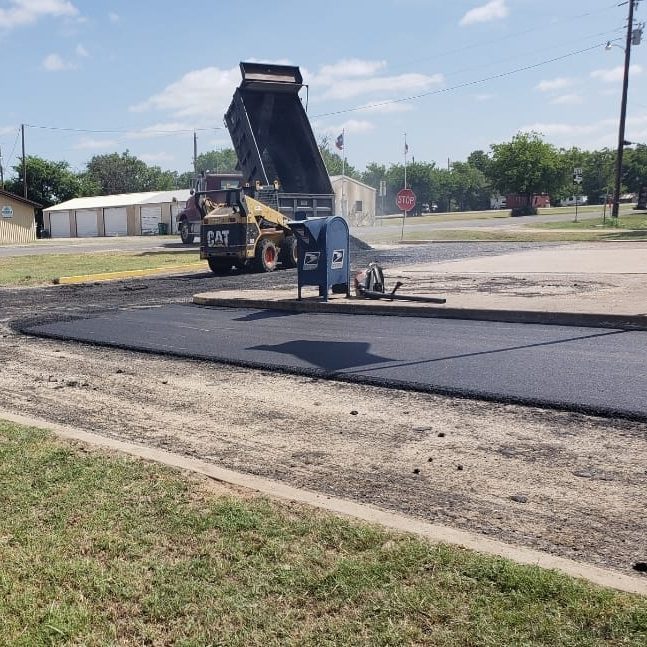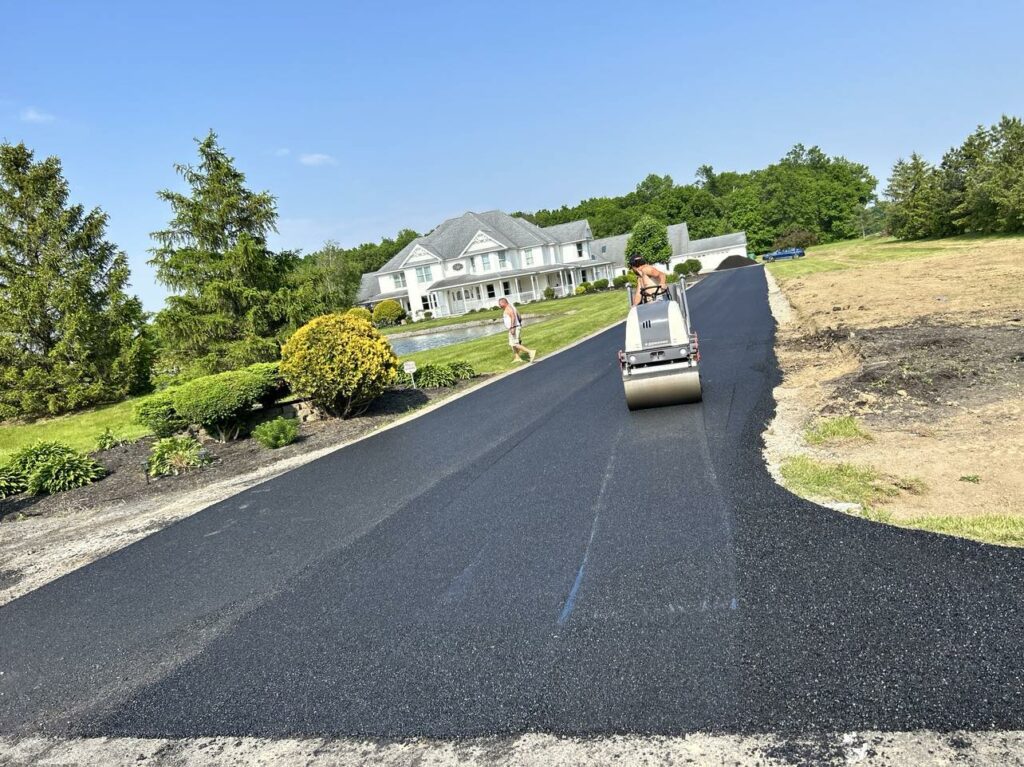Checking Out the Different Types of Asphalt Paving and Their Benefits
From the robust features of Warm Mix Asphalt to the environment-friendly features of Recycled Asphalt Sidewalk, comprehending these options can substantially influence job end results. Technologies such as Warm Mix Asphalt and Porous Asphalt present additional layers of effectiveness and sustainability.
Warm Mix Asphalt
When considering one of the most effective leading services, hot mix asphalt (HMA) stands apart as a premier selection for lots of applications (paving service). HMA is a functional leading material recognized for its sturdiness, flexibility, and overall efficiency. It is generated by heating asphalt binder and combining it with accumulations at heats, making certain a consistent combination that can stand up to various environmental conditions
Among the primary benefits of HMA is its capability to offer a smooth, skid-resistant surface, boosting safety for lorries and pedestrians alike. Additionally, HMA shows outstanding resistance to contortion, making it optimal for high-traffic areas such as highways and parking whole lots. Its flexibility to various climates further adds to its extensive usage.
The setup process of HMA is fairly quick, allowing for effective project completion with marginal disruption to website traffic. It can be reused, minimizing waste and advertising sustainability within the building and construction market. paving. On the whole, hot mix asphalt continues to be a top option for leading professionals because of its robust performance qualities and lasting cost-effectiveness, making it a trusted remedy for numerous facilities needs
Cozy Mix Asphalt
Warm mix asphalt (WMA) supplies an ingenious alternative to hot mix asphalt, offering comparable benefits while needing reduced manufacturing temperature levels. Generally created at temperature levels in between 190 ° F and 250 ° F, WMA modern technology lowers power usage and greenhouse gas exhausts during manufacturing, making it a much more eco friendly choice.
Among the vital advantages of WMA is its extensive workability period. The reduced temperature levels enable for much more efficient transportation and placement, specifically in cooler weather conditions. This adaptability can bring about boosted compaction and overall resilience of the asphalt surface. In addition, WMA can be made use of in different applications, varying from freeways to domestic driveways, without endangering performance.

The consolidation of additives or modified binders in WMA contributes to its boosted buildings, guaranteeing that it fulfills or goes beyond efficiency criteria. Additionally, WMA's decreased thermal impact throughout production can lower the probability of damage to the surrounding setting, making it an enticing option for sustainable paving methods.
Cold Mix Asphalt
Cold mix asphalt is a versatile paving service generally made use of for short-term repairs and low-traffic areas. This type of asphalt is produced at ambient temperatures, making it a convenient choice for fast repairs and projects where traditional warm mix asphalt may not be feasible. The combination generally consists of asphalt binder, accumulation, and ingredients, allowing it to stay convenient for an extended duration.
One of the key benefits of cool mix asphalt is its convenience of application. It can be set up without specialized devices, making it obtainable for smaller sized service providers and do it yourself fanatics. Additionally, cold mix can be applied in various weather condition problems, which is especially helpful for urgent repair service needs.

Cold mix asphalt is likewise affordable, as it permits budget-friendly repairs without sacrificing quality. Its adaptability makes it appropriate for patching potholes, filling cracks, and resurfacing driveways. Although it may not supply the same lasting sturdiness as warm mix asphalt, its fast application and adaptability make it an outstanding selection for short-lived options and low-traffic applications. In general, chilly mix asphalt stays a functional option in the asphalt paving landscape.
(try here)
Porous Asphalt
Permeable asphalt is an innovative paving option developed to improve stormwater administration and reduce surface area runoff. This kind of asphalt includes a special structure that incorporates interconnected gaps, permitting water to permeate with the surface and right into the underlying layers. By assisting in natural drain, porous asphalt assists alleviate the risk of flooding and reduces the burden on municipal stormwater systems.
Among the primary advantages of porous asphalt is its capability to improve water top quality. As stormwater infiltrate the pavement, toxins and sediments are trapped, reducing the variety of pollutants that enter neighborhood waterways. This adds to healthier communities and sustains compliance with ecological regulations.
Additionally, permeable asphalt can enhance the long life of the sidewalk itself. By lowering water buildup externally, it lessens the potential for freeze-thaw cycles that can bring about breaking and damage. The lowered demand for traditional stormwater management framework can result in expense financial savings for districts and developers.
Recycled Asphalt Pavement
(try here)Recycled asphalt sidewalk (RAP) stands for a sustainable approach to highway construction and maintenance that benefits both the atmosphere and the economy. By reusing existing asphalt materials, RAP reduces the demand for new basic materials, which subsequently saves important source natural deposits and minimizes ecological impact. This technique decreases energy intake and greenhouse gas discharges connected with the manufacturing of new asphalt.
The consolidation of RAP right into new pavement blends can also bring about substantial expense financial savings. Contractors can take advantage of recycled products to lower total task expenditures, making it a financially sensible alternative for districts and private programmers alike. Furthermore, RAP provides equivalent performance attributes to virgin asphalt, guaranteeing resilience and long life in roadway surfaces.
RAP's convenience permits it to be utilized in numerous applications, including highways, car park whole lots, and property driveways. By boosting the architectural integrity of existing sidewalks, RAP adds to boosted safety and security and level of smoothness of highways.
Conclusion
Finally, the varied sorts of asphalt paving each offer unique benefits customized to specific requirements. Hot Mix Asphalt stands out in toughness and quick setup for high-traffic areas, while Cozy Mix Asphalt boosts sustainability via decreased power consumption. Cold Mix Asphalt works as a cost-effective choice for urgent fixings, Porous Asphalt properly manages stormwater, and Recycled Asphalt Sidewalk advertises environmental responsibility. Collectively, these leading solutions add to efficient, environmentally friendly methods in the construction sector.